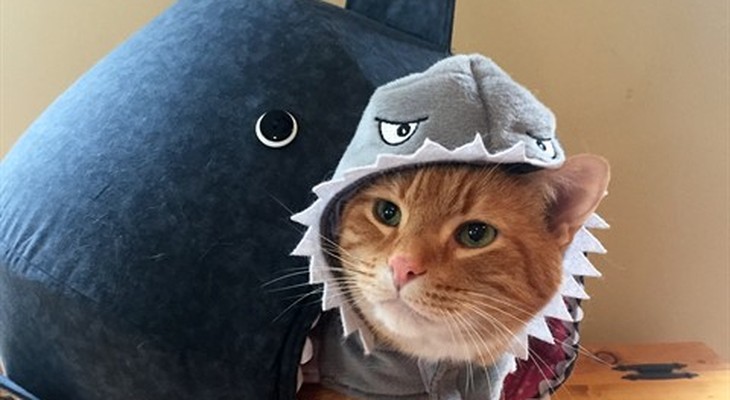Do y’all remember the time an emotional support animal was kicked off a United flight for being disruptive? In this instance, “being disruptive” included a pig defecating and screaming in the cabin. Passengers were quick to complain about the stink, noise, and awkwardness of it all because, when you pay good money to fly, doing so without a barnyard experience is a reasonable expectation.
Thankfully, over the last decade, emotional support animals have been kept on a tighter leash since they are not now, nor were they ever service dogs. Airlines have reeled in their restrictions and put a muzzle on the idea any animal can fly under the “if it fits, it sits” mantra.

(AP Photo)
Everybody knows that the owner of that peacock, hamster, boa constrictor, cat, or hedgehog does not rely on the animal to aid in the performance of specific tasks. Rather, they don’t want to leave their beloved animal behind. Levity, affection, companionship — that’s why we have pets! We also have therapists.
The U.S. Department of Housing and Urban Development defines an “assistance animal” or emotional support animal as “an animal that works, provides assistance, or performs tasks for the benefit of a person with a disability, or that provides emotional support that alleviates one or more identified effects of a person’s disability. An assistance animal is not a pet.“
TLDR: An emotional support animal is not a pet but a working animal that serves a distinct purpose and is not a reason to upset the apple cart of civil society.
What is reasonable?
An art gallery curator approaches a guest and says, “I’m sorry, ma’am, but we do not permit miniature horses, even if it’s an emotional support animal, as it might damage or destroy this artist’s creation.” Is this unreasonable? Did we care how Hoofy felt? No, and no.
You know what is unreasonable? A teenager. An existential crisis shouldn’t happen every day, but it does when you’re in that awkward, impressionable place between childhood and adulthood. It’s such a relatable theme that Alice Cooper wrote a song about it in 1971.
Eighteen,
I get confused every day.
Eighteen,
I just don’t know what to say.
Eighteen,
I gotta get away.
I’m not usually one to give anyone source whiplash, but going from glam rock to the Coalition for Juvenile Justice makes sense here because the organization published an op-ed in 2022 arguing “Why Young People Should Not Be Tried As Adults In America“:
The brain’s structure and function undergo considerable changes during adolescence. Adolescents are more vulnerable to irrational decision-making caused by impulsivity and reward or sensation-seeking behavior due to their psychosocial immaturity.
If the criminal justice system is inclined to “follow the science” and apply the law differently for those who have been proven to make bad decisions based on a scientifically immature brain, then why are we not applying the same logic to the kabuki theater that is prevalent with gender dysphoria?
Why are we more confident standing up to someone who wants to bring their emotional support tarantula down the jetway than we are telling a parent, “Your child is healthy and whole, and things might be tough and confusing now, but let’s not make any brazen, irreversible decisions”?
For our VIP members: School Hides Girl’s ‘Transition’ From Parents, and the Predators Moved In
Not yet a VIP member? Sign up here.
Who really needs the emotional support?
Let me make this easier for anyone who knows this behavior is wrong but is concerned with being labeled a “transphobe” or “bigot”: understand that these adults are literally using children as their emotional support animals.
In these cases, the parent suffers from reality dysphoria. The inability to be the parent in the parent-child relationship is, in fact, a disability. It can cause stress, anxiety, projection, depression, and misdirected aggression. Interestingly, those are some of the very reasons people procure an emotional support animal.
A parent who cannot tell their child “no” (and mean it) is not a parent who can have honest, constructive conversations about the facts of life.
“No, you didn’t make the basketball team; let’s find a place for you to practice that layup.”
“I’m sorry you didn’t get asked to the dance; do you still want to go?”
“Honey, we all wish we could change things about our bodies. The rule in this family is you can surgically change your body when you are an independent adult and able to pay for the procedures yourself. Until then, maybe we should find someone for you to talk to about this because I’m sure you don’t want to talk to me about it, or do you?”
Instead, when a problem presents itself, the reality-dysphoria parent’s solutions are indulgent, superficial, attention-seeking, and self-validating. These parents hear their son say he thinks he should be a girl, and, with a land-speed record, he is whisked away to a nail studio for a mani/pedi and then to Charlotte Russe for a new wardrobe. On the way to the hair salon, the parent and new-found daughter will debate the merits of Vallorie versus Vallary or maybe Valloreigh.
How the gender dysphoria problem spiraled
All of the kids enduring this zeitgeist phenomenon of being born in the wrong body were birthed between 2006 and 2015, about the same time social media really took off. In 2006, Facebook stopped requiring a higher education email address for an account, so the whole world was free to start curating their perfect public life, and that’s what the parents of these kids did.
Weddings, baby announcements, and first days of school were staged to make good on the lie that Stepford is a real place. For some of the most insecure, children shifted from being actual people to props, and that is where it all began. Parents could not accept that their perfectly imperfect children did not fit the narrative, and so they got desperate.
Desperate enough to warrant an emotional support animal — I mean, child — a sweet and innocent source of love and adoration that makes them feel better about themselves. Exploiting naïveté and gullibility for hey-look-at-me relevance is a small price to pay for likes and self-worth, is it not?
And what happens when people get desperate? They become irrational, emotional, and aggressive.

So what do we do? Short of Sarah McLachlan singing a sad song against a montage of mutilated arms, thighs, breasts, and genitals, we must begin somewhere, and I propose it’s this article. Share this article far and wide. Spread the truth and perspective that exonerates children and asks their parents to simply be honest.
We don’t need protests or hateful rhetoric, just an unwavering commitment to reason and humanity. For the right-of-center, this should fall in line with being pro-life, pro-family, and pro-science. For those in the middle or to the left, there’s enough data in here to give you a leg to stand on in a civilized conversation.
Showing these kids that we are not mad at them, that they are not broken or a mistake, that we want them to be healthy — essentially, showing them what a parent is supposed to be — will help, too. We can overcome this madness if we’re as brave as we were back in the day when the person in the middle seat tried to sit down with an emotional support chicken on a flight from Newark to L.A.









Join the conversation as a VIP Member